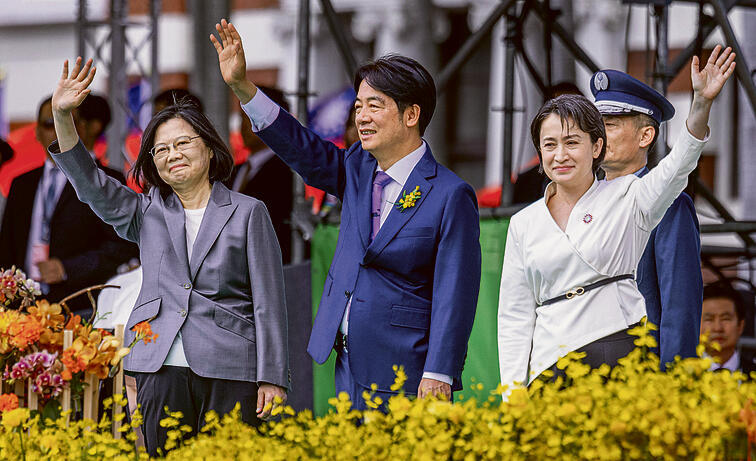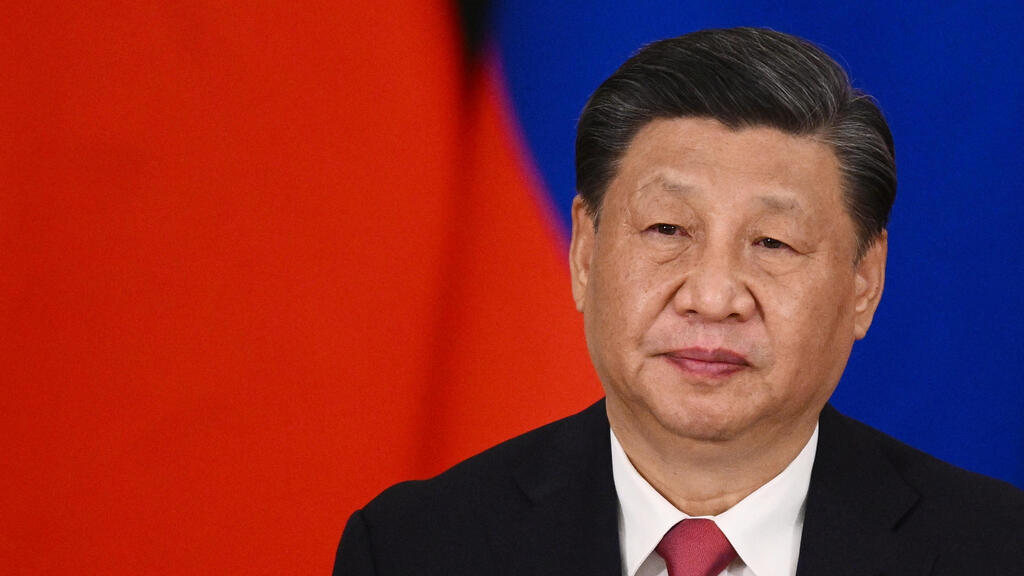Getting your Trinity Audio player ready...
"In war, there are no winners. Peace is the only option," said Taiwan's new president, Lai Ching-te, 65, in his inaugural address on Monday. "Russia's invasion of Ukraine and the conflict between Israel and Hamas continue to shake the world. China's military activities and gray zone violations pose a significant strategic challenge to global peace and stability. Taiwan's role is to lead the way to peace."
Approximately 20,000 people attended the inauguration celebrations for Lai and his vice president, Hsiao Bi-khim, 53, held in front of the Presidential Office Building in central Taipei. The ceremony began with an impressive display of power, including a flyover by dozens of Taiwanese Air Force fighter jets.
This was precisely the message President Lai, a physician by training and the son of a coal miner who served as Taiwan's vice president for the past eight years, wanted to convey. "By standing side by side with other democratic countries, we can create a peaceful global community, demonstrate deterrent strength to prevent war, and achieve our goal – peace through strength," said the president in his speech.
The inauguration ceremony was spectacular, featuring an honor guard of soldiers performing rifle drills, dance troupes, musicians, acrobats, baseball players, judo teams, a scooter parade, Taiwanese rappers, children's choirs and even paper dragons and a giant horse puppet emitting smoke.
At the end of the ceremony, the new president and vice president sang and danced with children. The Taiwanese purposefully chose a ceremony involving many children and young people to send a message: the government identifies with the youth who want to maintain independence from China, in contrast to the opposition and the older generation who wish to unify with the Chinese.
One of the main concerns overshadowing the presidential inauguration celebrations is the fear of a military invasion by China. The Taiwanese government rejects the pressures from China to "unify," and most island residents refuse to live under the rule of the Chinese Communist Party. However, Chinese President Xi Jinping insists that his country's takeover of the island is "inevitable," and his policy on this issue has become increasingly aggressive in recent years.
Taiwan fears it might be the next target of an attack by its neighbor, following Ukraine and Israel, and is thus preparing for war – emphasizing defense. Signs directing people to the nearest shelters have been posted in the streets of the capital, Taipei; the outgoing president enacted a law extending mandatory military service for young people from four months to one year; the government has significantly increased the defense budget; and the U.S. Congress recently approved an $8 billion aid package for Taiwan.
On Monday, Lai devoted about half of his inaugural address to sending messages to China. "I hope China recognizes the reality of Taiwan's existence, respects the choice of Taiwan's citizens, and opts for dialogue based on principles of respect and equality," he said, urging China to take friendly steps such as resuming tourism and student exchanges.
Lai, known to be a supporter of Israel, visited in 2016 as part of a foreign ministry conference for city leaders after being identified as a rising star in Taiwanese politics. During that visit, he met with Prime Minister Benjamin Netanyahu and then-mayor of Jerusalem, Nir Barkat.
Under the Chinese threat, the Taiwanese strongly identified with what Israel experienced on October 7. To them, it underscores the alignment of values – a coalition of democracies and liberal countries that promote human rights. In their view, democracies in the free world are under attack from authoritarian regimes and must support each other.
Indeed, after October 7, Taiwan went to great lengths to support Israel. Over a million dollars were donated, including food packages for families, contributions to Magen David Adom, and security equipment for the Local Government Center. The Taiwanese admire Israel's resilience and want to learn from it. Following October 7, Taiwan's Ministry of Defense established a task force to study the war between Israel and Hamas.
"The task force was created with the understanding that intelligence is a key factor in preparing against potential enemy attacks," explained Taiwan's defense minister.
In other words, the Taiwanese want to ensure they are not caught off guard, as the Israelis were.



